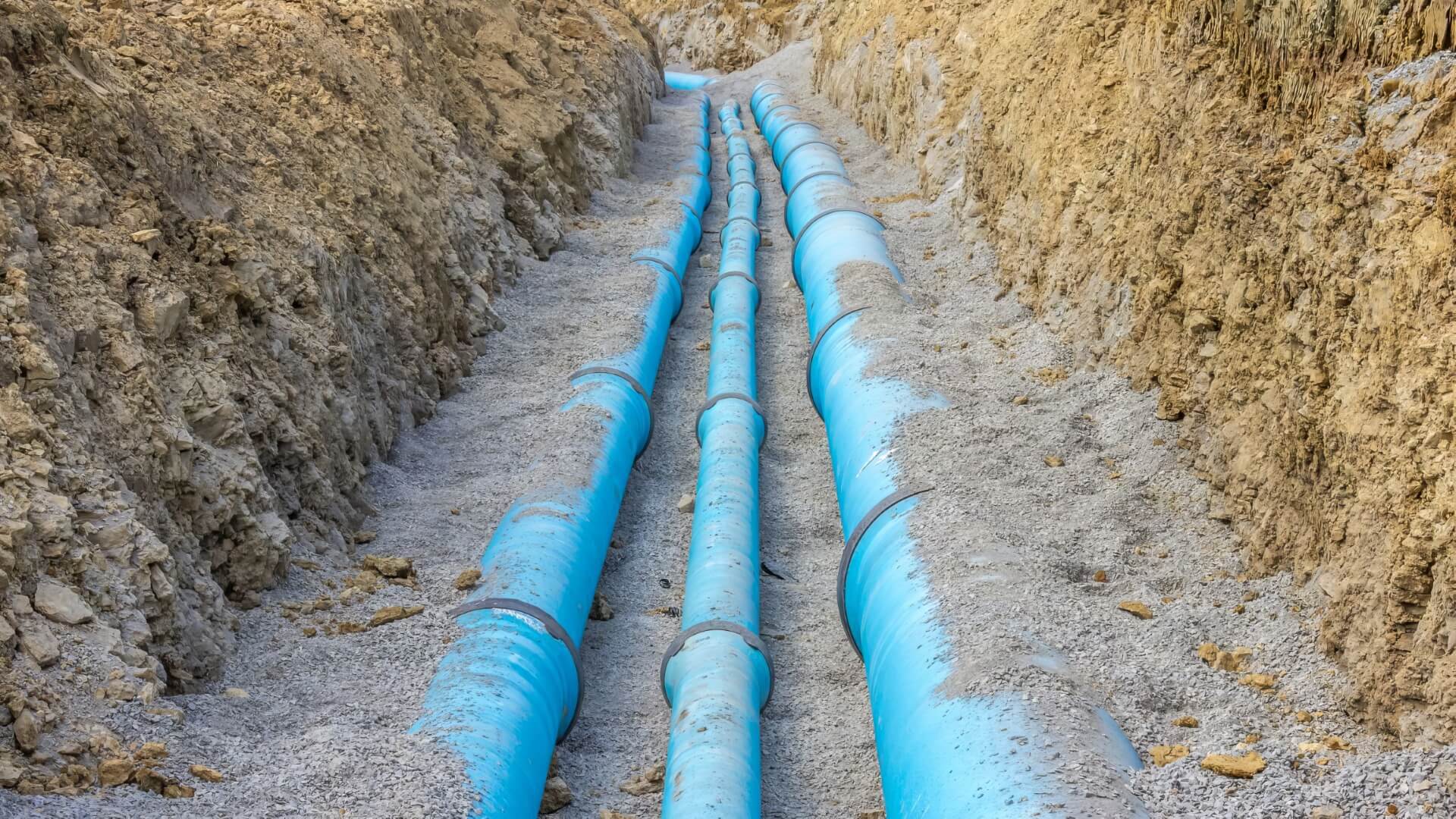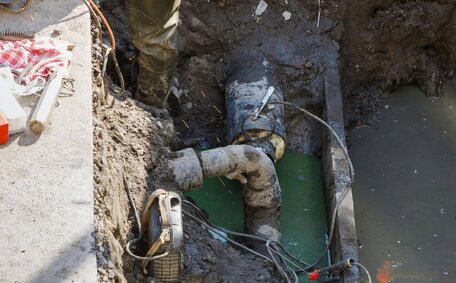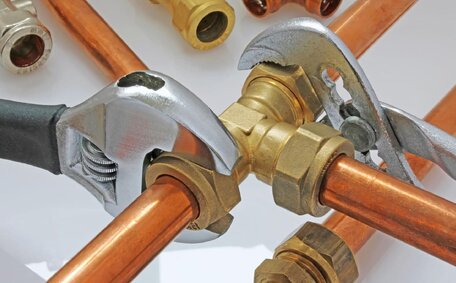Understanding Common Plumbing Emergencies
Homeowners commonly encounter plumbing emergencies such as burst pipes, blocked drains, gas leaks, and hot water system failures. These issues can lead to extensive water damage, sewage backups, significant safety hazards from gas leaks, and loss of essential utilities like hot water for bathing and washing.
Approximately 25% of households are disrupted by a plumbing emergency each year, underscoring the need for preparedness. When it comes to plumbing mishaps, they tend to strike at the most inconvenient times and can completely disrupt daily home life. Developing an emergency plan which includes prompt contact with a plumber is vital in safeguarding your home against damage.
Burst pipes typically occur during winter freeze spells or from excessive water pressure. A compromised pipe can quickly become a fountain, spewing hundreds of gallons of water into a home, where water can saturate walls, floors and furnishings. Drain backups from clogs or tree root invasions can also flood basements with raw sewage.
A gas leak, though less frequent, demands an immediate response alongside other plumbing emergencies due to the associated explosion risk and carbon monoxide poisoning hazard. Additionally, complications such as sewer line backup or well pump failures, leave families pondering the necessary plumbing steps to resume hot water service without causing more damage.
Keeping a 24/7 emergency plumber’s contact info readily available is key to minimising damage and accelerating repairs in crises. When grappling with water-related mishaps, it’s crucial to have quick action like knowing how to turn off water to prevent common household crises from becoming catastrophic events.
Locating and Labeling the Main Water Shutoff Valve
Knowing how to locate and operate your home’s main water valve is crucial for managing plumbing emergencies. This valve allows you to immediately halt the water supply, preventing further damage from burst pipes or leaks.
To promptly locate your main water shutoff valve in a crisis, follow these steps:
- Start by checking around your front exterior hose bib or taps, as the shutoff valve is often found in nearby spaces such as your crawlspace, basement or garage, within a recessed valve box.
- Trace the largest incoming water line back to locate the valve. Main shutoffs are usually gate valves or ball valves rather than tap valves.
- Mark the shutoff valve with a conspicuous tag stating "Main Water Shutoff Valve" and affix reflective tape to enhance visibility.
- Educate your family on the valve’s location to equip them to respond confidently in an emergency. Regular reminders help maintain easy access to the valve.
These simple preparedness steps can hasten water shutoff in crises, potentially preventing over 18,000 litres of water damage before a plumber arrives.
Assembling an Emergency Plumbing Kit
Having the right tools on hand can be transformative in effectively handling plumbing emergencies. In good prudence, we suggest assembling an emergency plumbing kit, considering what can aid in swiftly managing problem situations like:
- Plunger - Useful for clearing minor toilet or sink clogs.
- Pipe wrench - Essential for manipulating supply valves or working on pipes.
- Adjustable wrench - Helps undo or secure fittings, aiding in plumbing maintenance tasks.
- Flashlight - Essential for illumination in dark spaces.
- Bucket - Catches the flow water from leaks.
- Old towels - Soak up small water spills.
- Protective gloves - Essential for safeguarding your hands and preventing injuries during repairs.
- Duct tape & sealing tape - Temporary seals for cracks or leaks.
- Tarpaulins - Cover furnishings from water damage.
A consolidated emergency kit enables you to tackle issues such as burst pipes, gas leaks, and blockages prior to the arrival of an emergency plumber. Proper preparation can pave the way towards alleviating any stressful situation in your domicile.
Taking Immediate Action to Minimize Damage
It’s critical to know the immediate steps to take during plumbing crises, as access to emergency plumbers might be delayed. As soon as a major leak, burst pipe, sewer backup or other crisis occurs, Embark on your next steps:
- Immediately turn off the main water valve, usually near the front hose bib or water meter, to halt the property’s water supply. This action will prevent further gallons of water from entering the home.
- Cut power to any electrical devices in proximity to standing water. Never touch electrical devices if water is present and call for our expert plumbing services if the situation requires professional attention.
- Shield possessions by draping furniture and valuables with tarps or plastic.
- Use towels and buckets to soak up surplus water, a practical step as you await support. However, resist the urge to attempt repairs yourself; this could be the perfect time to call in professionals.
- Photographing water damage for insurance claims is crucial for accurate reimbursement; remember to detail each step taken.
- Immediately call your emergency services and your emergency plumber to contain the incident.
Plumbing emergencies such as drain backups or leaks can escalate, necessitating a call to an emergency plumber for immediate professional response. Acting promptly helps minimise damage and fix problems efficiently, safeguarding against more severe issues until professional help arrives.
Contacting a Professional Plumber
When facing any kind of plumbing emergency, it is crucial to contact an experienced plumber immediately. It’s important to seek out true plumbing professionals with 24/7 emergency availability along with solid credentials such as licenced, bonded and insured status.
Our 25 years of experience spans both residential and commercial plumbing emergencies, ensuring expert response at any time. Our team of licenced plumbers are on call around the clock. For prompt, expert assistance, contact West Pennant Hills Plumbing at 1300 349 338 or [email protected].
A reputable emergency plumber can effectively:
- Quickly stop leaks
- A plumber at your service will resolve burst pipes
- Clear clogged drains
- Repair well pumps
- Replace faulty water heaters
- Address sewer line failures
- Handle urgent issues and any other unexpected situations
Count on our skilled team for emergency plumbing repairs to swiftly restore your household’s normal functioning. We also work closely with insurance companies to facilitate potential claims.
Implementing Preventative Measures
Consulting your local plumber for proactive maintenance can help avoid emergencies and cut down repair costs ahead. We recommend inspecting all plumbing fixtures and supply lines periodically to check for leaks, corrosion and other warning signs of potential failure.
Protect your home by installing water leak detection devices that alert you to water escaping from pipes, preventing unseen leaks. Consider replacing very old piping, water heaters over 10 years old, and outdated drain lines to reduce emergency risk. Using enzyme drain cleaners monthly keeps lines clear, while water heater flushing enhances performance and longevity.
By staying vigilant and addressing minor plumbing issues before they escalate, you safeguard against destructive flooding and other catastrophic emergencies. Protect your home with preventative maintenance and system upgrades where needed.
Knowing When and How to Shut Off Utilities
In an emergency, it’s vital to know how to shut off all utility services, not just water. Being able to quickly cut power and gas can help contain a serious plumbing situation and protect safety.
Familiarising yourself with the main electrical panel’s location is crucial for maintaining safety. Additionally, learn the procedures for shutting off your gas supply at the main meter or propane tank.
The electrical panel, with its circuit breakers, oversees all electricity flow. Turning off the main breaker stops the power.
Like with water valves, label cut-off switches and keep access unblocked. Show all family members their locations as part of emergency planning. Switch off utilities only once safe to do so - never touch electrical devices near water.
Understanding how to safely control water, power and gas empowers you to know what steps to take for a quicker response when a plumbing issue arises. You avoid further damage or the possibility to end up in danger until professional help arrives. We’re always available at 1300 349 338 if you need emergency assistance shutting off or restoring utilities.
Equipping Yourself with Essential Cleanup Items
Being equipped with the right cleanup gear can significantly ease the post-emergency management process. We recommend assembling a spill kit that includes:
- Absorbent towels - Useful for mopping up water leakage
- Wet/dry shop vacuum – Sucks up standing water
- Mops and buckets - Scrub floors of flood residue
- Rubber gloves - Take care of your digits during the cleanup process
- Disinfectant spray - Sanitises areas contacted by sewage or greywater
- Garbage bags - Contains waste from cleanup
Keep this kit within easy reach to swiftly handle any affected areas during a plumbing emergency. When comes to leaks, overflows, or backups, you can promptly remove excess water and sanitise affected areas while awaiting the plumber’s assistance. Proper cleanup is crucial to do while the restoration efforts are underway and prevents secondary damage like mould growth.
Evaluating Damage and Documenting Issues
Once a plumbing emergency is addressed, it’s crucial to assess any resulting damage for insurance documentation and to guide restoration efforts. Carefully inspect all affected areas, noting:
- Locations and extent of water damage or sewage backups
- Drywall, flooring or other property damage
- Which items may need replacement due to contamination
Take ample photos from different angles to thoroughly document the damage, securing accurate insurance reporting. Ascertain the dimensions of every leak in your sanctuary and jot them down soon after the event happens. Document losses from property destruction using your inventory records. Track all cleanup expenses such as equipment rentals or professional restoration services.
Compiling thorough written and photographic damage details assists insurance assessors in processing claims for reimbursement. Keeping precise records also helps when coordinating repairs with your plumber and restoration specialists to return your home to pre-emergency condition.
Choosing a Reputable 24/7 Emergency Service
Choosing a 24/7 emergency plumbing service requires confirmation of their reputation, expertise, and responsiveness. Look for companies with:
- Solid references and positive online reviews
- Fully licenced and insured technicians
- Specialised training and years of experience
- True 24/7 availability, not just an answering service
- Clear pricing with no hidden fees
- A track record of fast response times
As a reputable plumbing company, we have an established local presence and a team fully equipped to handle urgent issues safely at all hours. We openly share credentials, reasonable rates, and testimonials from satisfied customers across the West Pennant Hills area.
When emergency strikes, trust our 24/7 excellence, transparency and responsiveness to minimise disruption and distress. Contact West Pennant Hills Plumbing anytime at 1300 349 338 for reliable assistance you can count on.
Conducting Regular Maintenance
When it comes to preventing costly repairs and plumbing emergencies, enlisting professionals who can schedule periodic maintenance is key. Creating a maintenance log to record inspections and plumbers’ comments is advisable for proficient home care. Routinely check the following areas:
- Hot water systems – Regular inspections of tanks, valves and pipes are necessary to evade situations that could damage your home. Flush heaters to reduce sediment buildup.
- Fixtures - Check taps, showerheads, and toilets for leaks, low pressure, or corrosion.
- Drains - Clean sinks and tub drains regularly to clear hair and soap residue. Use enzyme treatments monthly.
- Supply lines - Look for wet spots indicating leaks. Replace corroded pipes.
Preventative maintenance helps identify plumbing problems early on, preventing them from progressing into severe failures or causing water damage. Our licenced plumbers can handle inspections and repairs to keep your plumbing running smoothly. Contact us anytime at 1300 349 338 to schedule service.
Understanding Your Plumbing System
Pinpoint your drainage and sewer lines, scrutinising them for past problems. Note pipe materials (e.g. copper, PVC) to indicate potential leak risks.
Trace the cold water and hot water lines from your water heater to map your plumbing layout and locate the main shutoff valve. At minimum, you should be aware of the make, model, age, and fuel type of your unit to ensure its proper function and maintenance. Familiarising yourself with the key components of your home’s plumbing can make handling emergencies much easier.
Inspect fixtures like faucets, toilets and hose bibs for flow strength, corrosion and leaks. Also locate your outdoor irrigation system and components for pools/spas if applicable. Inspect fixtures like faucets, toilets and hose bibs for flow strength, corrosion and leaks.
Check under sinks for signs of water damage. Learn how to turn supplies on/off and operate valves.






